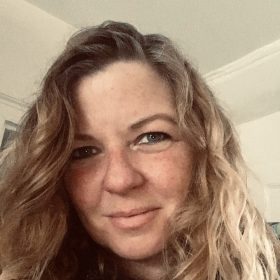The government’s Civil Society Strategy aims to involve third sector organisations, i.e. volunteers, charities and social enterprises, more in the NHS. From them the NHS will buy (commission) services for NHS patients. These bodies can also help the NHS decide what services the NHS should pay for (co-commissioning). Research now exists about the NHS buying services from (say) private hospitals but we know much less about how the NHS could work better with third sector organisations.
This study aims to increase that knowledge. Partly this means NHS bodies knowing better how third sector organisations work, and about how they react when outside bodies buy services from them. We also wish to pin-point what third sector organisations themselves need to learn about how to work with the NHS. One reason for wanting to know these things is that third sector organisations often focus on the needs of groups for whom (as they see it) NHS services are not well designed. This research will therefore focus on three such areas:
- Older people wanting activities (e.g. exercise or social contact) that will help keep them healthy
- Hospice care
- People with learning disabilities and complex behavioural problems.
This three year study, by researchers with much experience of this kind of work, will focus on these three groups of people. We will make case studies of how the NHS buys services for them from third sector organisations. We will look, too, at how these bodies can help the NHS design better services for these groups. As the other side of the coin we will also look into how the NHS can help third sector organisations provide the evidence and other material that the NHS needs in order to buy services from them. We also wish to find out what happens to third sector organisations that sign contracts with the NHS to care for these groups. For example, does it make the 3rd sector behave more like NHS or other public bodies? We will analyse NHS accounts to find out where third sector organisations are providing NHS-funded services, what kind of services and for whom (for example, what services they provide for deprived or ethnic minority groups).
By using these findings and surveys of staff and volunteers, we will find out what further skills, knowledge, training and perhaps other support both the NHS bodies and the third sector organisations working with the NHS need, in order to co-operate more fully. We are keen to involve patients and the public in this work, above all members of charities and not-for profit bodies.
The project Advisory Committee will include many such people to advise and guide us about our research questions and working methods, and in making sense of the findings. It will include service users, since they may have a different view from volunteers and paid staff. From the third sector organisations where we make case studies, we will recruit members to join the research team, so that they can learn-by-doing about how to deal with NHS bodies, and how to do their own research, in future, to help their own organisation win NHS funding and support.
The project’s two research fellows will each be out-posted for short periods to the case study third sector organisations, both to collect data and help mentor VCSE colleagues. In these ways, and through the training and other support activities noted above, members of the public and patients will play a major role in this project.
Collaborators
- Professor Sheena Asthana, Director of Plymouth IHCR, University of Plymouth
- Dr Jonathan Clark, University of Plymouth
- Peninsula Clinical Trials Unit (PenCTU)
PenARC Staff

